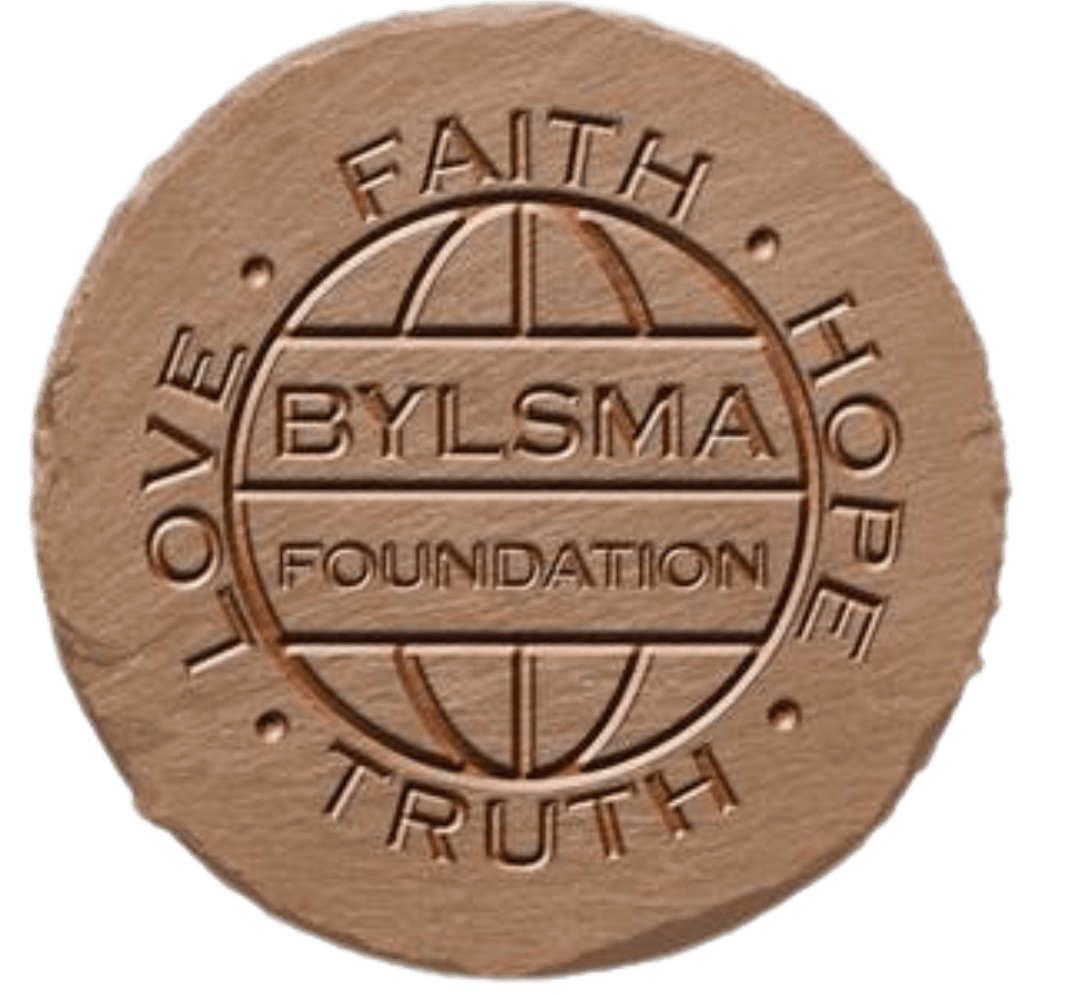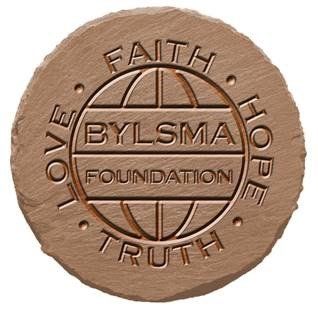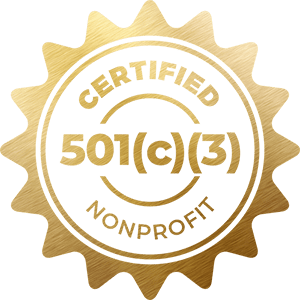
Freedom and life wither and die without faith, hope, love, and truth..... Pete Bylsma

New Paragraph
BYLSMA FOUNDATION BYLAWS
ARTICLE I: NAMES AND PURPOSES
The name of the corporation is the Bylsma Foundation (known in these Bylaws as “Foundation”). It is organized exclusively for charitable, religious, and educational purposes under section 501(c)(3) of the Internal Revenue Code, or corresponding section of any future federal tax code. Specifically, the Foundation’s purpose is to support non-profit organizations and educational institutions that help people in need, promote justice in the world, seek and spread the truth, help others understand the stories and meanings of the Bible, and encourage those who need good news. The Foundation is considered to be a nonprofit corporation and a private foundation.
ARTICLE ll: BOARD OF DIRECTORS
1. Board Membership
The Board of Directors (Board) is comprised of the President, the Treasurer, the Secretary, and Members-at-Large. The Executive Board is composed of the President, Treasurer, and Secretary and may meet separately to handle the ongoing needs of the Foundation. There is no fixed number of Board members, but at a minimum, there must be at least be three members who comprise the Executive Board.
The President is solely responsible for determining the members of the Board. The President will select individuals who (1) support the core mission of the Foundation, (2) are able to attend Board meetings, either in person or by phone or video conference, and (3) will actively participate in Board discussions and provide honest feedback to the President on all matters related to the Foundation. The President will seek to establish and maintain a Board that reflects a diversity of perspectives and vocations and that honors the Board norms. Any Board member may resign from the Board by giving written notification to the President. The President may remove any Board member who is not able to meet the qualifications required for Board membership after consulting with a quorum of Board members. Changes to the Board’s composition will be communicated to the Board by the President within two weeks of the change. If the President is unable to conduct his duties, the remaining Board members will meet to elect a new President.
All Board members, with the exception of the President, will hold office for a period of three year from the time they assume office or until a successor has been appointed; members may serve no more than two consecutive terms and must leave the Board for at least one year before joining the Board again. When new Board members are needed, the President and Board will identify individuals who are good candidates for Board membership. After receiving input from the Board about potential Board members, the President will determine who should be invited to join the Board.
2. Board Responsibilities
The President is the executive head of the Foundation and, with the aid of the Executive Board, develops policies and procedures related to the operations of the Foundation. The President schedules meetings, presides at all such meetings, and with the approval of a majority of the Board, selects and supervises the Treasurer and Secretary. The President is solely responsible for making decisions about grants made to deserving recipients and will prepare a written summary report annually of the activities of the Foundation.
The Treasurer maintains the permanent financial records of the Foundation, including revenues and expenditures for each year, and works with the President to establish budgets and financial reports for use in planning and managing the Foundation’s financial affairs.
The Secretary maintains records of meetings and other matters related to the affairs of the Foundation.
Members-at-Large assist in the work of the Foundation as needed, including the review of reports made by members of the Executive Board and providing advice on Foundation policies, procedures, practices, and organizations and individuals that are good candidates to receive Foundation support.
3. Meetings
The Foundation will conduct at least one Board meeting each calendar year, which will be designated as the annual meeting. The date of this meeting must be no later than 13 months after the previous annual meeting. Additional Board meetings, including any special meetings, may be called by the President or a majority of the Board. All Board meetings will be announced at least one week in advance, and the Executive Board will determine the agenda and date/time of the meeting. A quorum consists of at least 50% of the Board’s members. Board members may participate in meetings in person or by electronic means (e.g., email, virtual meetings, phone). If a Board member cannot attend a meeting, the member may still vote on Board matters by submitting their vote electronically or by mail prior to the time a vote is taken.
4. Norms and Core Values
The Board will operate using the following norms:
- Seek first to understand, then to be understood
- Hear all voices and perspectives before making decisions
- Seek consensus whenever possible (at least 2/3 majority)
- Respect others’ time by working efficiently and effectively
- Follow through on commitments made
- Provide honest comments in a professional manner
- Assume good intentions
- Demonstrate the Christian principles of love and respect in words and actions
- Keep guidelines and procedures to a minimum and avoid bureaucracy
The Board has the following core values:
- Excellence
- Collaboration
- Inclusion
- Diversity
- Simplicity
- Flexibility
- Efficiency
- Balance
- Equity
- Impact
- Learning
- Patience
- Service
5. Compensation/Reimbursements
The President may receive compensation for the time required to manage the affairs of the Foundation. Total annual compensation will be $50,000 or five percent (5%) of total revenue for that year, whichever is less. One payment will be made in January based on the revenues from the previous year. Other Board members will not receive compensation for being on the Board. Any Board member may receive an honorarium from other organizations for time spent related to Foundation matters. The amount of the honorarium must be approved by the Executive Board in advance. Board members who incur expenses related to Foundation activities or events will be reimbursed by the Foundation after the member’s expected expenses are approved by a member of the Executive Board and after a member of the Executive Board receives a record of the expenses incurred. Payment by the Foundation may be made by any member of the Executive Board. To maintain proper internal controls, payments issued to a person may not be made by the same person. The Foundation will provide liability insurance to board members.
6. Conflict of Interest
No Board member may be involved in decisions in which they may directly or indirectly gain financially from the decision. Board members are required to disclose any potential conflict of interest when it may occur and may participate in discussions related to Board actions related to the matter. If the Board believes there is a conflict of interest, the member with the conflict must recuse themselves when voting takes place.
ARTICLE III: FINANCIAL AND IN-KIND SUPPORT STRATEGIES AND PROCEDURES
1. Strategies
The Foundation, through the Board and its representatives, will use two primary strategies when considering the recipients of financial and in-kind contributions. The Foundation will (1) be proactive and reach out to organizations that are doing work that is consistent with the Foundation’s purpose, based on input from Board members and others; and (2) receive requests for financial and in-kind assistance using processes created by the Board.
2. Processes and Procedures
In order to consider what organizations will receive financial or in-kind support, the Foundation will establish processes and procedures that will (1) gather relevant information needed to make decisions about a grant’s amount, scope, duration, and recipients; (2) ensure decisions about the level and type of support are made in a fair and efficient manner; and (3) ensure decisions about Foundation support are communicated to the relevant parties in a timely manner. Decisions about what organizations to support will be made quarterly. Exceptions to this cycle can be made when circumstances require decisions to be made more rapidly.
Grants can be for any purpose that is consistent with the Foundation’s mission and for any amount of time, although one-time grants for no more than one year will be normally used. Funding for scholarships for individuals may be initiated at any time, and funds will go to the educational institution rather than to the individual. Scholarships will be given for up to one year at a time and may be renewed based on the student’s enrollment status and school performance.
Any grants made for activities that take place outside the United States will only be made to organizations that do not appear on the Treasury Department’s list of terrorist or non-charitable organizations (i.e., OFAC Specially Designated Nationals and Blocked Persons Lists). Before any grant is made to an organization based outside the United States, a representative of the Foundation must verify the need onsite. When necessary, on-site visits will occur while grant funds are being used to ensure their proper use. The grantee must provide documentation to the Foundation about how grant funds are used.
The President or Secretary will maintain all documentation related to grants and in-kind contributions, including the proposal, verification of nonprofit status of the recipient, funding agreements, how funds were used, and any important results from the Foundation’s contribution to the organization.
3. Funding Sources
The main source of revenues received by the Foundation will come from the revenue generated from the sale of products associated with The Short Bible. Specifically, once the initial investment expenses have been recovered, 90% of the royalties generated by The Short Bible products will fund Foundation grants, in-kind contributions, and operations. Donations received from private and corporate donors, both designated for specific purposes and undesignated to general purposes, will be a secondary source of funding.
Funds sent to the Foundation must be deposited in a timely manner into the Foundation’s bank account. An annual audit of the financial records and transactions of the Foundation will be conducted by an independent party that is approved by the Executive Committee. The scope of the audit will be appropriate to the activities of the Foundation for that year.
4. Staffing
The Foundation will have no employees. However, when additional personnel are needed to perform essential duties relate to Foundation activities, they will do so on a contract basis at a reasonable rate. The Executive Committee must discuss the details of a proposed contract prior to issuing the contract.
ARTICLE IV: AMENDMENTS
The Foundation’s bylaws may be amended by a majority of Board members who attend a regular or special meeting of the Foundation’s Board. A copy of any proposed amendment must be made available to all Board members at least one week prior to the meeting.
ARTICLE VII: DISSOLUTION
Upon the dissolution of this organization, assets shall be distributed for one or more exempt purposes within the meaning of section 501(c)(3) of the Internal Revenue Code, or corresponding section of any future federal tax code, or shall be distributed to a state or local government entity for a public purpose.
Approved July 2022

